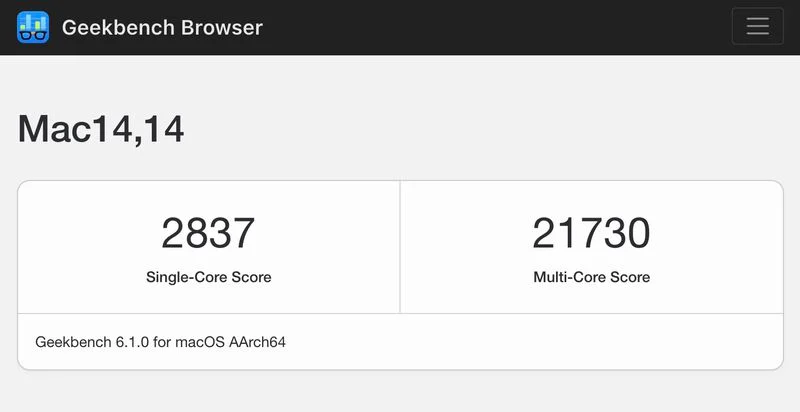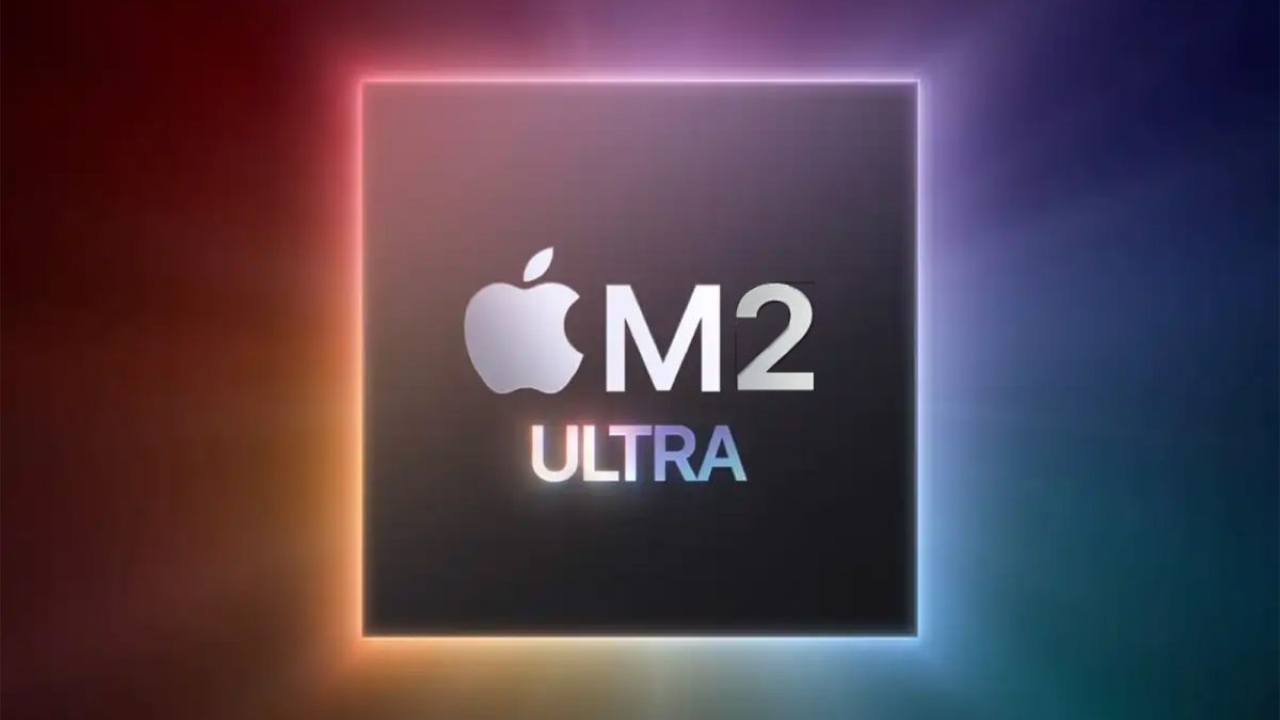The excitement continues for Apple’s newly introduced M2 Ultra chip, showcased at the WWDC 2023 conference on June 5th. With its top-notch technical specifications, the processor sets the bar high for performance and recently emerged in performance tests. So, how did the Apple M2 Ultra perform in these tests?
Apple M2 Ultra spotted on Geekbench
The Apple M2 Ultra received scores of 1,956 and 27,945 in Geekbench’s single-core and multi-core test results, respectively. The Geekbench 5 platform highlights that the Mac Studio used in the test had 192 GB of RAM and was running the beta version of macOS 14 Sonoma.

The story is no different in the Geekbench 6 database. The chipset delivered an outstanding performance, scoring 2,837 in single-core tests and 21,730 in multi-core tests.
Let’s compare the M2 Ultra processor with its competitors. For example, the Intel Core i9-13900K achieved 2,300 in single-core and 27,000 in multi-core tests. On the other hand, AMD’s Ryzen 9 7950X processor obtained scores of 2,300 and 25,000 in single-core and multi-core modes, respectively.
According to Apple, the M2 Ultra processor offers 20% faster CPU performance compared to the previous model. This makes it Apple’s fastest chipset to date. Benchmark performance indicates that the chipset is 10% faster in single-core and multi-core test results compared to the previous model.
The M2 Ultra contains 134 billion transistors, which is 20 billion more than the M1 Ultra. With its unified memory architecture supporting up to 192 GB of memory capacity, it provides 50% more capacity than the M1 Ultra and twice the memory bandwidth with 800 GBps compared to the M2 Max. The chip, which has a CPU 20% more powerful than the M1 Ultra, also features a larger and up to 30% faster GPU and a Neural Engine up to 40% faster.













